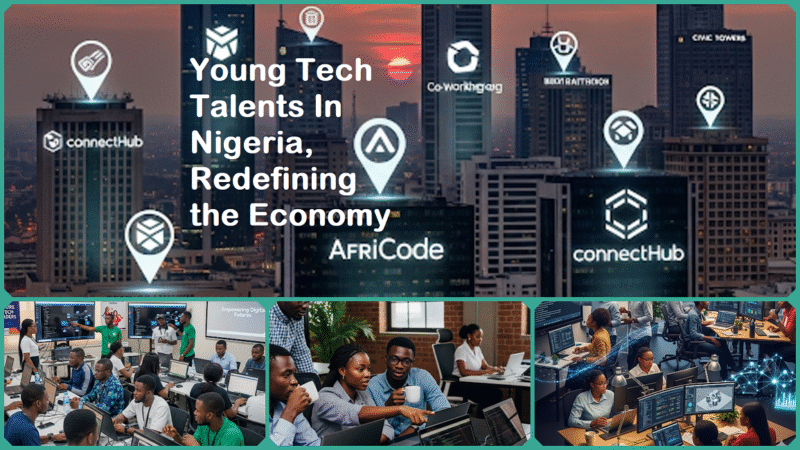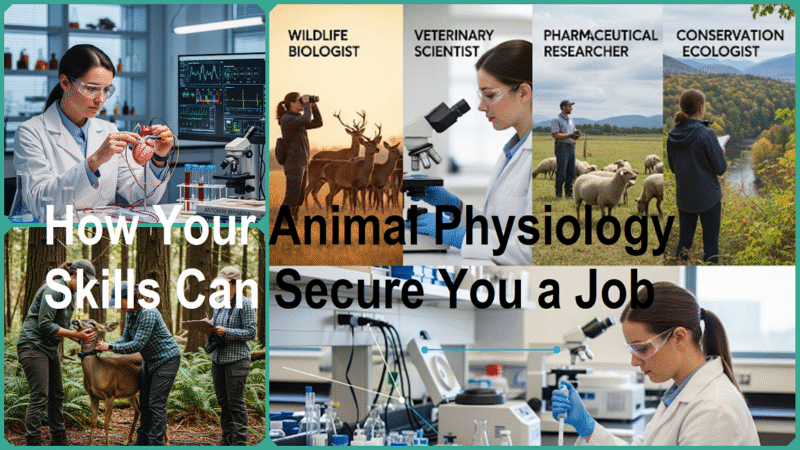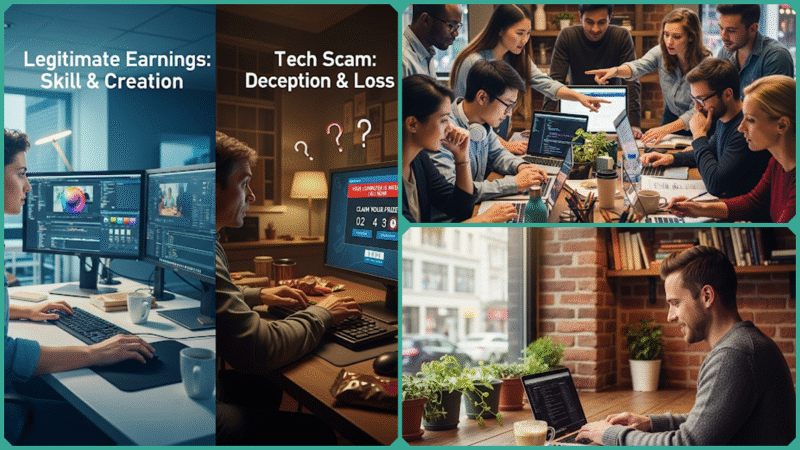In-demand Skills that Are Overshadowing University Degrees
Estimated reading time: 26 minutes
The long-held traditional belief that obtaining a university degree is the guaranteed ticket to securing a prosperous career is rapidly fading away in the modern world. In today’s ever-evolving and dynamic job market, employers are increasingly prioritizing what you can do and demonstrate in terms of skills and practical abilities over where you went to school or which institution awarded your degree.
This significant change towards these in-demand skills signals a transformative shift in hiring practices, moving away from a degree-centric approach towards a much more skills-based hiring paradigm that values real-world capabilities and experience above formal educational credentials alone.

This trend has significant implications for students, recent graduates, educators, employers, parents, and policymakers: it challenges established ideas about employability and asks all stakeholders to rethink strategies for workforce readiness, curriculum design, and career guidance.
This comprehensive guide delves into the rising importance of in-demand skills, highlights the most valued abilities today, explains why they are surpassing traditional degrees, and shows how you can develop these skills to enhance your career opportunities in 2025 and beyond.
Key Concepts: Degrees vs. Skills-Based Hiring
The modern job market is undergoing a significant transformation, challenging the long-held belief that a university degree is the sole key to a successful career. This shift is giving rise to skills-based hiring, an approach where employers prioritize a candidate’s practical abilities and demonstrable skills over their formal educational qualifications.
Let’s explore the fundamental differences between the traditional degrees-based model and the emerging skills-based model, examining how this evolution is reshaping recruitment, career paths, and the very definition of a qualified professional.
What Are In-Demand Skills?
In-demand skills are those valuable abilities and competencies that employers are actively and consistently searching for, as they directly address both the current demands and anticipated future needs within various industries.
These skills tend to evolve frequently, adapting to rapid technological advancements, ongoing innovation, and the continuous transformation of the modern workplace environment. Generally, these in-demand skills can be divided into two primary categories:
- Hard skills: These refer to technical or specialized abilities that are essential in various professional fields, including but not limited to coding, data analysis, digital literacy, artificial intelligence, and cybersecurity. Hard skills are usually acquired through structured learning methods such as formal education, certification programs, comprehensive online courses, or practical hands-on experience gained in real-world settings. These skills are measurable and can be demonstrated through tests, projects, or professional credentials.
- Soft skills: These are essential interpersonal and cognitive abilities that encompass a wide range of qualities such as effective communication, teamwork, adaptability to new situations, critical thinking, creativity, and problem-solving skills. Soft skills play a crucial role in how individuals interact with others and approach challenges. They are highly transferable across various jobs and industries, making them valuable assets for career growth. In today’s competitive professional environment, soft skills increasingly serve as key differentiators that set top performers apart from their peers and contribute significantly to overall success.
The Rise of Skills-Based Hiring
Skills-based hiring signifies a significant shift in recruitment strategy, where the focus is placed primarily on actual capabilities and demonstrated competencies rather than relying heavily on traditional academic credentials or formal degrees.
This innovative approach is rapidly gaining momentum and widespread acceptance among many leading organizations and industry pioneers who recognize the value of practical skills in driving business success.
- Global Hiring Trends: According to the comprehensive 2025 Talent Outlook Report published by the World Economic Forum, an increasing number of employers—specifically 60%—now prioritize practical skills over formal educational qualifications when making hiring decisions. This shift in preference is particularly noticeable in entry-level roles, as well as across technology and digital sectors, where hands-on experience and applied knowledge are becoming more critical for job success.
- Industry Examples: Many major corporations, including well-known companies like Google, IBM, and Apple, have embraced skills-based hiring practices for a wide variety of roles. These companies focus primarily on evaluating candidates based on their skills, experience, and competencies rather than relying heavily on traditional university degrees. University degrees are generally considered secondary and are only emphasized when legally required, such as for professions like doctors, engineers, or lawyers, where specific certifications and qualifications are mandated by law. This shift reflects a growing trend towards valuing practical skills over formal education credentials in the hiring process.
- Predictive Performance: Extensive research conducted by McKinsey in 2025 highlights that “hiring for skills is five times more predictive of job performance than hiring based on education alone.” This finding underscores the growing recognition among employers that prioritizing candidates’ actual abilities and competencies leads to significantly better outcomes. In other words, employers are increasingly achieving improved results by concentrating on what candidates are capable of doing in practical terms, rather than placing primary emphasis on the institutions where they completed their education or the prestige of their academic credentials.
Why This Matters
- Employability Redefined: In today’s rapidly evolving job market, employability increasingly hinges on having relevant, up-to-date skills and demonstrating a strong ability to adapt to new challenges, continuously learn, and effectively solve real-world problems, rather than solely relying on holding a traditional academic degree.
- Access & Diversity: Skills-based hiring significantly broadens opportunities for candidates coming from a wide range of diverse backgrounds, thereby greatly enhancing workplace diversity and fostering a more inclusive environment for all employees.
- Continuous Learning: The most employable candidates are those who actively commit to building, expanding, and regularly updating their skillsets throughout their careers, regardless of their academic history or background. These individuals understand the importance of staying current with industry trends and continuously seeking new knowledge and abilities to remain competitive in the ever-evolving job market.
In Summary
The global job market is undergoing a significant transformation, moving away from a traditional focus on degree-based hiring towards a greater emphasis on prioritizing in-demand skills. This shift highlights the growing importance of practical, demonstrable competencies that employers seek in candidates to navigate and succeed in an ever-changing and dynamic world.
Current Trends and Developments: Why Skills Are Overshadowing Degrees
The current job market is being reshaped by a confluence of rapid technological advancements and evolving employer needs. We will explore the key trends driving the shift from degrees to skills, including the accelerating pace of automation and AI, the increasing demand for specialized competencies, and the financial and time burdens associated with traditional higher education.
Rapid Industry Evolution
Industries like technology, marketing, and design are evolving at an incredibly rapid pace, almost lightning speed, which has led to a growing and significant disconnect between the content taught in traditional university curricula and the actual skills that employers currently require. By the time students complete their degrees and graduate, many of the skills and knowledge they have been taught are already outdated and no longer align with the latest industry standards.
As a result, employers are placing a much higher priority on candidates who can bring cutting-edge, immediately applicable skills to the workplace—skills that are not only up-to-date but also directly support their organizations’ fast-paced innovation cycles and ongoing digital transformations.
Online Learning Boom
The rise of accessible online learning platforms such as Alison, Coursera, Udemy, and LinkedIn Learning has significantly democratized the process of acquiring new skills. These innovative platforms provide affordable and highly flexible learning options for both students and working professionals, allowing them to develop high-value technical and soft skills without the extensive time commitment or financial burden typically associated with pursuing a full university degree.
As a result, this shift has empowered many candidates to bypass traditional university pathways altogether, enabling them to strategically build targeted and relevant skill sets that are highly valued by employers in today’s competitive job market.
Skill Gap in Graduates
Multiple surveys and comprehensive reports consistently reveal a deeply concerning and persistent gap in essential skills among recent graduates. A significant number of these graduates lack not only real-world problem-solving capabilities but also critical digital literacy and the adaptability required to thrive in today’s rapidly evolving workplaces.
Despite possessing academic degrees, these candidates often fall short of meeting employer expectations when it comes to practical job readiness and hands-on experience, which leaves many companies struggling significantly to fill critical roles and maintain productivity.
Inclusive Hiring
Skills-based hiring practices significantly expand opportunities for creating a more diverse and inclusive workforce. By concentrating on the specific abilities and competencies that candidates can demonstrate, employers are able to broaden their talent pools to include individuals from a wide range of educational, socioeconomic, and cultural backgrounds.
This approach especially benefits those who may not possess traditional university degrees or conventional qualifications. Ultimately, this method promotes greater equity in hiring and unlocks access to a wealth of untapped talent that might otherwise be overlooked.
Reduced Hiring Mistakes and Improved Outcomes
Statistics strongly indicate that companies tend to make significantly better hiring decisions when they place a primary focus on evaluating and prioritizing candidates’ actual skills and competencies rather than solely relying on traditional credentials or experience. This skills-first approach often leads to more accurate assessments of a candidate’s potential job performance and cultural fit.
- Around 90% of companies report that they make significantly better hires when they focus on candidates’ skills rather than just their academic degrees or formal educational qualifications. This approach has proven to be more effective in identifying the right talent for their specific job roles.
- Skills-based hires typically outperform those who are hired solely based on their degrees, showing significantly higher levels of productivity and engagement in their roles. This approach to hiring emphasizes practical abilities and competencies, which often lead to better job performance and greater overall contribution to the organization.
- Hiring processes become significantly more efficient and streamlined, resulting in an impressive up to 25% faster time-to-hire. This improvement is largely due to the implementation of skills assessments and practical evaluations, which effectively replace the traditionally lengthy and time-consuming credential vetting procedures.
Data and Research Insights
- Workplace Impact: Skills-based hiring significantly increases workplace diversity, boosting it by approximately 10%, and it also effectively reduces employee turnover rates by about 20%. When companies focus on hiring individuals based on their actual skills and competencies rather than traditional criteria, employees tend to remain with the organization for a longer period and demonstrate higher levels of performance and productivity. This approach not only enhances team dynamics but also contributes to a more inclusive and stable work environment.
- Future Projections: It is estimated that nearly 1 billion workers across the globe will need to undergo reskilling by the year 2030 in order to stay relevant and competitive within their respective industries. This significant shift is driven by rapid technological advancements and ongoing economic transformations that are reshaping the nature of work worldwide.
- Talent Pool Expansion: Adopting a skills-based hiring approach has the potential to significantly broaden candidate pools, expanding them by up to 6 times on a global scale. This expansion can be even more pronounced in certain countries, such as the United States, where the number of eligible candidates can increase by nearly 16 times, dramatically enhancing the diversity and range of talent available for employers to consider.
- Industry Adoption: In the year 2025, more than 80% of employers have adopted some form of skills-based hiring, demonstrating a significant and growing trend in the movement away from traditional degree-focused recruitment models. This shift highlights the increasing value placed on practical skills and competencies over formal educational credentials in the hiring process.
These trends clearly emphasize that regardless of whether you are a student just starting your educational journey, a recent graduate entering the workforce, or an experienced professional advancing in your career, acquiring and effectively demonstrating in-demand skills has become essential. These skills play a crucial role in enhancing your employability and fostering significant career growth in today’s rapidly evolving and highly competitive job market.
The Most In-Demand Skills for 2025
In a job market defined by rapid change and technological innovation, the skills that were once a bonus are now becoming essential. We are going to identify and define the most sought-after competencies for 2025, providing a clear roadmap for anyone looking to future-proof their career.
We will explore both hard skills—the technical, job-specific abilities that drive innovation—and soft skills—the human-centric, interpersonal qualities that machines can’t replicate—highlighting why a combination of both is the new gold standard for success.
Hard Skills Employers Value
| Hard Skill | Why It Matters | Example Careers |
|---|---|---|
| Data Science & Analytics | Powers informed business decisions and drives innovation through analysis of vast data sets. | Data Analyst, Business Intelligence Developer |
| Artificial Intelligence & Machine Learning | Drives automation and smarter systems enabling predictive analytics and operational efficiency. | AI Engineer, AI Product Lead |
| Programming & Software Development | Builds the essential digital infrastructure and software solutions for modern businesses. | Software Developer |
| Cybersecurity | Drives automation and smarter systems, enabling predictive analytics and operational efficiency. | Security Analyst, IT Specialist |
| Digital Marketing | Grows brands, increases sales, and manages online reputation across digital channels. | SEO Expert, Content Strategist |
| Cloud Computing | Enables scalable, flexible, and secure business solutions on remote servers. | Cloud Engineer, DevOps Engineer |
- Example: McKinsey projects a remarkable 36% growth in job opportunities for data scientists and anticipates a significant 33% rise in cybersecurity positions within the United States from 2023 through 2033. This forecast highlights the rapidly increasing demand and critical importance of these specialized skills in today’s evolving job market.
Soft Skills Employers Value
| Soft Skill | Why It Matters |
|---|---|
| Communication | Enables collaboration, client relations, and clear expression of ideas. |
| Adaptability | Keeps teams productive and resilient amid rapid change. |
| Problem-Solving | Helps identify and implement effective solutions swiftly and creatively. |
| Teamwork | Builds productive and harmonious group dynamics. |
| Leadership | Motivates and guides teams toward shared objectives. |
| Interpersonal SKills | Builds trust, manages conflicts, and fosters relationships. |
| Work Ethic | Drives reliability, commitment, and perseverance. |
| Attention to Detail | Prevents errors, increases efficiency, and drives quality. |
| Creativity | Sparks innovation and new product/service development. |
| Time Management | Ensures deadlines are met and improves overall productivity. |
- Example: According to recent data, an overwhelming 97% of employers consider soft skills to be just as important, if not more important, than hard skills when evaluating potential and current employees. Additionally, it has been found that nearly half of all new employees end up failing within their first 18 months on the job, primarily because they lack the necessary soft skills required to succeed and thrive in the workplace environment.
Emerging and Future-Focused Skills
- AI Literacy & Large Language Model (LLM) Proficiency: Developing a strong understanding and mastery of AI tools and large language models is rapidly becoming essential across a wide range of industries and sectors. This expertise not only significantly enhances productivity but also plays a crucial role in driving and shaping strategic innovation in various professional fields.
- Digital Fluency: Going far beyond just basic computer skills, digital fluency involves the ability to effectively leverage a wide range of modern technologies to significantly drive efficiency, foster innovation, and enable seamless remote collaboration among teams and individuals. It encompasses not only knowing how to use digital tools but also understanding how to apply them strategically to solve problems and improve workflows in various contexts.
- Analytical Thinking and Agility: The ability to thoroughly break down and analyze complex problems, interpret a wide range of data accurately, and quickly adapt to rapidly changing and often unpredictable environments is critical as workplace disruptions and challenges continue to increase at an unprecedented pace.
- Leadership & Social Influence: Effective leadership, when combined with the ability to influence, inspire, and manage talent, has become increasingly valuable and essential in today’s hybrid and remote work environments. The capacity to guide teams, foster collaboration, and maintain strong connections despite physical distance plays a critical role in driving organizational success in these evolving work settings.
Summary of the Top Hard and Soft Skills in Demand
| Skill Category | Top Skills | Importance | Example Roles |
|---|---|---|---|
| Hard Skills | Data Science, AI & ML, Programming, Cybersecurity, Digital Marketing, Cloud Computing | Drives innovation, security, and business growth | Data Scientist, AI Engineer, Developer, Security Analyst |
| Soft Skills | Communication, Adaptability, Problem-Solving, Teamwork, Leadership, Creativity | Facilitates collaboration, innovation, and resilience | Project Manager, Team Leader, Customer Success Manager |
In today’s competitive and constantly evolving job market, employers increasingly expect candidates to demonstrate a well-rounded combination of both technical expertise and strong interpersonal skills. This balanced skill set is essential for individuals to not only secure opportunities but also to thrive and grow within their chosen careers over time.
Skills vs. Degree: A Direct Comparison
The transition from a degree-centric approach to a skills-based hiring strategy represents a profound and fundamental transformation in the way employers identify, recruit, and promote talent within their organizations. This shift not only changes the criteria used for evaluating candidates but also impacts the overall talent acquisition and development processes.
Here’s a clear and direct comparison that highlights the essential differences between these two distinct hiring models:
| Factor | Degree-Centric Model | Skills-Based Model |
|---|---|---|
| Entry Requirements | Demonstrable skills through portfolios, practical tests, and certifications take precedence. | Career progression is largely reserved for degree holders |
| Hiring Focus | Focus on credentials, grades, and alma mater | Emphasis on problem-solving ability, adaptability, and tangible results |
| Advancement | Career progression largely reserved for degree holders | Open pathways for self-taught, certified, or experiential learners to advance |
| Workplace Diversity | Generally limited due to degree requirements | Higher diversity as the candidate pool widens without educational barriers |
| Time-to-Hire | Slower due to resume screening, degree verification, and traditional interviews | Faster due to skills assessments and relevant project evaluations |
Implications of the Shift
- Democratizing Opportunities: Skills-based hiring significantly broadens access to job opportunities, creating a more equitable landscape for candidates who come from non-traditional educational backgrounds or alternative learning paths. This approach not only values practical abilities over formal credentials but also plays a crucial role in enhancing social mobility by allowing a diverse range of individuals to compete fairly and succeed based on their true skills and potential.
- Hiring Efficiency: Employers significantly shorten recruitment cycles by prioritizing candidates’ practical skills and demonstrated competencies over traditional academic credentials. This approach allows companies to identify and onboard qualified individuals more quickly, streamlining the hiring process and reducing time-to-fill for open positions.
- Better Job Fit and Performance: Carefully assessing demonstrated skills during the hiring process results in significantly improved hiring outcomes by ensuring candidates are well-suited for their roles. This approach helps reduce employee turnover rates and contributes to enhanced overall effectiveness and productivity within the workforce.
This comparison underscores the fact that skills-based approaches not only effectively address and align with the complex realities of today’s rapidly evolving and constantly changing job market but also actively promote and support more inclusive, efficient, and performance-focused talent acquisition and management strategies.
Actionable Advice: How to Build In-Demand Skills
For individuals looking to thrive in a skills-based economy, the key is to be proactive in acquiring and demonstrating the right competencies. We will provide a practical guide to building in-demand skills, offering actionable advice on leveraging alternative education platforms, gaining hands-on experience through projects and internships, and effectively showcasing your abilities to potential employers, regardless of your formal academic background.
For Students and Recent Graduates
- Online Courses and Micro-Credentials: Leverage platforms such as Alison, Coursera, edX, Google Career Certificates, and IBM SkillsBuild. These platforms offer flexible paths to technical expertise in areas like data analysis, AI, digital marketing, and programming.
- Certifications and Badges: Earn industry-recognized certifications such as CompTIA for IT, AWS for cloud computing, and Salesforce for CRM. These credentials validate your skills and make you stand out to employers.
- Freelance Projects: Gain practical experience and build a portfolio by freelancing on platforms like Upwork or Fiverr. Contribute to open-source projects or startup initiatives to showcase real-world applications of your skills.
- Apprenticeships & Internships: Pursue paid or project-based apprenticeships and internships that focus on delivering measurable outcomes. These experiences bridge the gap between theoretical knowledge and workplace demands.
- Build a Portfolio: Create a digital portfolio containing project samples, code repositories, marketing campaigns, or design work that illustrates your competencies and problem-solving abilities.
- Continuous Learning: Dedicate time to ongoing skill development via workshops, webinars, online communities, and mentorship programs to stay current with industry trends and technologies.
- Networking: Join industry groups, attend conferences, and participate in online forums to learn about market demands and connect with professionals who can provide guidance and opportunities.
For Career Counselors and Educators
- Develop and offer workshops focused on in-demand soft and hard skills, such as coding, data literacy, communication, and adaptability.
- Advocate for a learning-over-credential approach by encouraging students to accumulate skills from diverse sources, including online courses, projects, and hands-on experiences.
- Regularly update curricula by collaborating with industry advisory panels to ensure alignment with evolving labor market needs.
For Employers and HR Professionals
- Revise job descriptions to emphasize skills and competencies rather than formal degrees.
- Incorporate skills assessments, practical tests, and portfolio reviews into the recruitment process to better evaluate candidate capabilities.
- Collaborate with bootcamps, training organizations, and upskilling programs to close skill gaps swiftly and nurture talent pipelines.
For Parents and Policymakers
- Encourage students to complement their degrees with targeted skills that the job market demands, focusing on both technical and soft skills.
- Support and promote inclusive education pathways, such as apprenticeships, digital literacy initiatives, and flexible learning programs.
- Advocate for policies and funding dedicated to reskilling and upskilling initiatives for youth and workers transitioning careers.
This comprehensive, multi-pronged approach plays a crucial role in making sure that individuals are not only well-equipped but also highly adaptable, enabling them to successfully navigate and thrive in an increasingly competitive and skills-focused employment landscape with confidence and competence.
The Mindset of Continuous Learning
Success in the workforce of tomorrow is no longer guaranteed simply by having expertise in a single skill or specializing in just one field. Instead, it increasingly hinges on cultivating a mindset of lifelong learning—a continuous and active commitment to constantly acquiring new knowledge, developing diverse skills, and adapting to rapidly emerging technologies, innovative tools, and evolving workflows.
This ongoing dedication to personal and professional growth is essential for staying relevant and competitive in an ever-changing job market.
Employers in the current job market increasingly prioritize candidates who demonstrate:
- Adaptability: The essential capacity to rapidly and effectively adjust to new challenges, emerging technologies, and dynamic market shifts while maintaining a consistent level of productivity and performance. This skill enables individuals and organizations to stay resilient and thrive in constantly changing environments without experiencing significant setbacks or interruptions.
- Self-Education: The strong motivation and resourcefulness to actively seek out and engage in learning opportunities independently, often utilizing a variety of methods such as online courses, extensive reading, participation in professional communities, and other self-directed educational resources. This approach allows individuals to continuously expand their knowledge and skills outside of traditional classroom settings.
- Reskilling and Upskilling: This is an ongoing and continuous process of actively upgrading, enhancing, or diversifying one’s existing skill sets to remain relevant in the ever-changing job market or to successfully pivot into new roles and career paths as industries and technologies rapidly evolve.
- Agility Across Roles: The ability to seamlessly transition between different job functions, effectively leveraging a broad range of transferable skills to consistently add significant value across diverse work environments and varied professional contexts. This flexibility enables individuals to adapt quickly and contribute meaningfully regardless of the specific role or setting.
This continuous learning mindset is a true competitive advantage because it ensures individuals remain employable and can contribute meaningfully to innovation and problem-solving, even as job requirements rapidly change.
Organizations are increasingly recognizing and rewarding employees who actively take ownership of their professional growth and development, understanding that these individuals play a crucial role in driving resilience and ensuring sustained success within ever-changing and dynamic workplace environments.
Such proactive employees not only enhance their skills but also contribute significantly to the overall adaptability and long-term achievements of the organization. Encouraging this lifelong learning ethos equips you not only to survive but also to truly thrive and excel in the constantly evolving modern job market environment.
Case Studies & Anecdotes on Skills-First Hiring
As a growing number of companies adopt a skills-first approach, real-world examples are emerging that demonstrate the power of this new hiring model. We are presenting compelling case studies and anecdotes of organizations that have successfully moved beyond traditional degree requirements to find talent, highlighting the benefits of a skills-based approach, from increased innovation to a more diverse and adaptable workforce.
Google’s Skills-First Hiring
Google fundamentally transformed its traditional hiring model by eliminating strict degree requirements for a large number of roles across the company. Instead of relying heavily on academic qualifications, Google now places greater emphasis on rigorous coding assessments, carefully structured behavioral interviews, and practical real-world problem-solving exercises to thoroughly evaluate candidates’ abilities and potential.
Additionally, Google utilizes advanced predictive hiring algorithms that analyze extensive data sets to identify specific traits and behaviors closely linked to successful job performance. This innovative approach also incorporates comprehensive peer-to-peer learning programs and encourages internal mobility within the organization, allowing employees to continuously develop and expand their skill sets over time.
By adopting this forward-thinking hiring model, Google has been able to more effectively and efficiently discover high-potential talent beyond traditional academic credentials, placing a much stronger focus on demonstrated skills and competencies rather than formal degrees.
IBM’s SkillsBuild Initiative
IBM has dedicated significant resources and efforts toward training and hiring candidates who do not possess formal college degrees through its innovative SkillsBuild program. This comprehensive initiative is designed to target key areas such as digital literacy, data analytics, and project management skills, with a strong emphasis on developing practical, hands-on competency. By prioritizing real-world abilities and measurable skills, IBM aims to create a truly job-ready workforce.
Additionally, IBM collaborates closely with various educational platforms and organizations, providing accessible upskilling pathways specifically tailored for underserved and marginalized communities. Through this focused approach, IBM is committed to expanding opportunities and fostering inclusive growth by valuing skills and potential over traditional academic credentials.
Tesla’s Approach
Elon Musk is widely recognized for his highly unconventional and progressive hiring philosophy: “I don’t care if you went to college at all, or even finished high school—if you have the right skills, you’ll get hired.” This approach challenges traditional employment norms and places a strong emphasis on real-world capabilities rather than academic credentials.
Tesla, the company he leads, fully embodies this ethos by prioritizing demonstrable abilities, proven skills, and genuine innovations above formal degrees. The company’s fast-paced, dynamic environment and high-expectation culture require employees who bring practical, hands-on experience, deep technical expertise, and a relentless growth mindset—regardless of their formal education background or academic achievements.
Accenture & Ernst & Young (EY)
These firms have implemented a wide range of comprehensive skills assessment tools designed specifically to identify and evaluate talent based on actual, practical competencies rather than traditional metrics.
By thoughtfully integrating various elements such as detailed skills assessments, realistic job simulations, and thorough portfolio reviews into their overall hiring processes, they place a strong emphasis on candidates’ real-world abilities and professional capabilities instead of relying solely on degree credentials or formal education.
This forward-thinking hiring strategy has significantly enhanced hiring outcomes, contributed to greater workforce diversity, and effectively reduced skill gaps in essential and critical job roles across their organizations.
These case studies clearly illustrate how leading companies across various industries are actively shifting their hiring paradigms to place a stronger emphasis on real-world skills, practical assessments, and fostering a continuous learning culture within their organizations.
This approach demonstrates that skills-first hiring is far more than just a passing trend; it has become a crucial strategic advantage that helps companies thrive and remain competitive in the rapidly evolving modern talent landscape. By prioritizing actual capabilities over traditional credentials, these companies are setting a new standard for effective talent acquisition and workforce development.
FAQs
Are university degrees worthless now?
University degrees remain critical in certain professions such as law, medicine, and engineering, where formal qualifications are legally required. However, in many other industries, employers increasingly value demonstrable skills, practical experience, and relevant certifications over just academic credentials. Degrees alone no longer guarantee employability.
What are the top technical skills employers want today?
The most sought-after technical skills include data analytics, cybersecurity, artificial intelligence (AI), programming, cloud computing, and digital marketing. These hard skills are driving innovation and efficiency across multiple sectors, especially in technology-driven roles.
How can I showcase my skills if I don’t have a degree?
Build an online portfolio to highlight your work samples and projects. Obtain industry-recognized certifications to validate skills. Engage in paid internships, freelance gigs, or contribute to open-source projects to gain practical experience. Also, leverage professional networks like LinkedIn to showcase endorsements and achievements.
Which soft skills should I focus on developing?
Focus on time management, adaptability, communication, leadership, problem-solving, teamwork, and creativity. Employers often consider soft skills as critical factors in hiring decisions and promotions because they influence workplace culture and productivity.
How do employers assess skills during recruitment?
Employers use a variety of tools, including practical assessments, online tests, portfolios, case interviews, and job simulations, to evaluate candidates. Video interviews and situational judgment tests are also common. Recommendations and references from past supervisors further aid in assessing competencies.
In Conclusion
The employment landscape in 2025 has unmistakably shifted away from a reliance solely on academic credentials as the primary measure of employability. Today’s employers increasingly seek candidates who can demonstrate a robust and well-rounded blend of technical expertise combined with strong interpersonal capabilities.
The most successful professionals in this evolving environment are those who fully recognize the critical importance of continuous skill development, actively embracing both essential hard skills, such as
- Data Science
- Cloud Computing
- Digital Marketing
as well as vital soft skills, including
- Effective Communication
- Adaptability in Changing Circumstances
- Advanced Problem-Solving Abilities
For students and recent graduates who are navigating an increasingly competitive job market, the imperative is absolutely clear and essential: it is crucial to invest significant time and effort in building a diverse set of in-demand skills through a variety of channels.
These can include enrolling in online courses, obtaining relevant certifications, engaging in freelance work, participating in internships, and undertaking self-directed projects. This comprehensive approach not only enhances your overall employability but also provides you with the flexibility and adaptability needed to successfully pivot and thrive as industries continue to evolve and change rapidly over time.
Educators, employers, and policymakers must urgently rise to the significant challenge before them by thoughtfully designing innovative structures, comprehensive programs, and forward-thinking policies that actively promote skills-first learning and hiring practices.
By wholeheartedly supporting diverse, accessible, and flexible education and training pathways, they can effectively empower individuals from all walks of life and backgrounds to not only succeed but truly thrive in today’s dynamic and evolving landscape.
Key Takeaway:
A university degree serves as just one foundational element; genuine career resilience is built through proactive skill acquisition, adaptability, and an ongoing, lifelong commitment to continuous learning and self-improvement.
In today’s rapidly evolving job market, individuals who consistently seek to expand, update, and refine their skills will be far better positioned to achieve long-term success and remain competitive throughout their professional lives.
Discover more from Skill to Grow
Subscribe to get the latest posts sent to your email.






